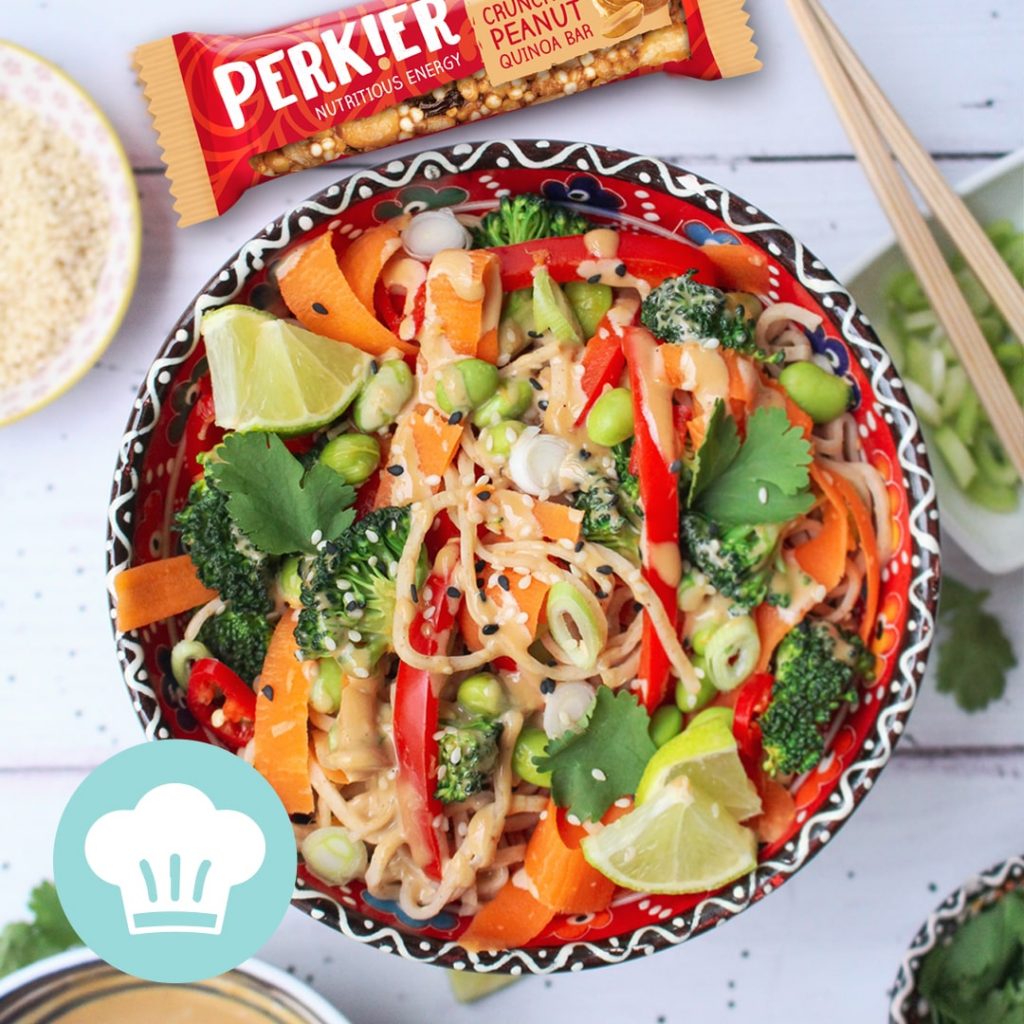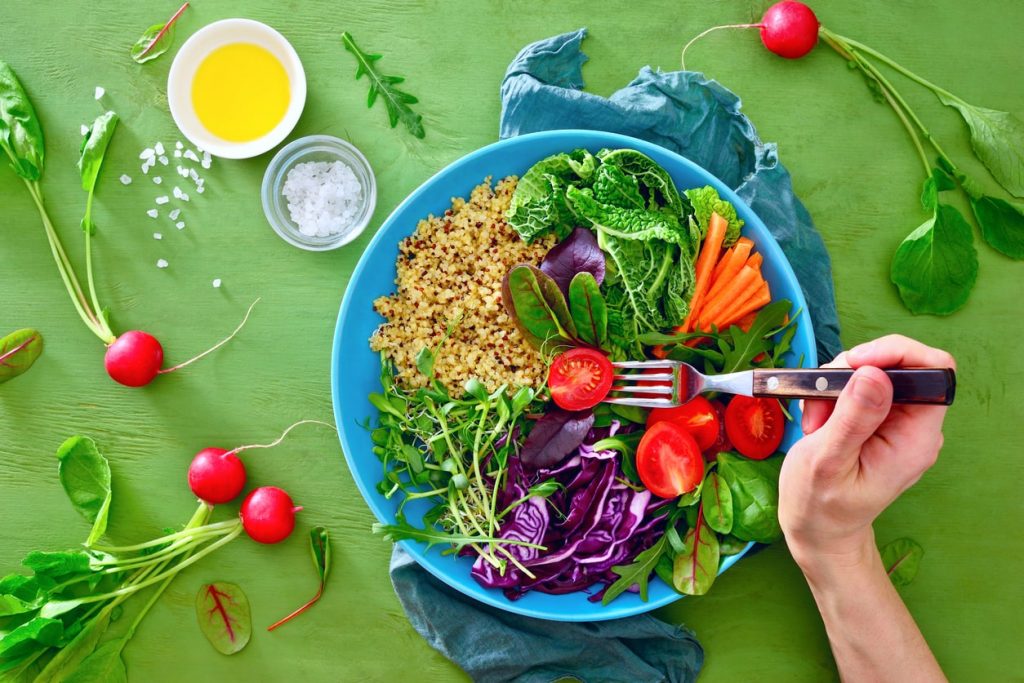Do you ever notice how some of your friends always seem to have a cough or cold, whereas others seem to be the picture of health all year round? Whilst it might just seem like some people are particularly unlucky when it comes to picking up germs there is a little more than luck to blame for this. Building a powerful immune system to fight off nasty disease-causing pathogens is key to our health.
..& with Coronavirus headlining the news around the globe, now is as good of a time as ever to start with these top immune boosting lifestyle tips. Below we cover 3 focus areas DIET, GUT HEALTH and importantly reducing STRESS… which can have an adverse effect on our immune system.

1. Gut health
Recently at Perkier we’ve been raving about the benefits of having a healthy gut (and for good reason). Along with numerous other benefits it may not come as a surprise that good gut health has also been linked to better immunity.
So what can we do to improve our gut health?
- Multiple studies have shown taking probiotics (friendly live strains) can reduce duration of the common cold by 2 days and reduce flu symptom severity.
- Our Perkier bars contain a whooping 5g of prebiotic fibre, this feeds the good strains of bacteria living in your gut (read more here). Eating prebiotic foods such as our bars alongside a variety of wholefoods will help you build up a strong microbiome to help fight off and outcompete pathogens that might enter your gut.
- Eat a wide range of wholefoods… we have lots of wholefood recipes here from Satay Noodle Salads to Sticky Tofu Summer Rolls.

2. Diet
A lot of us will start downing orange juice at the first sign of a sniffle because we’ve been told about the immune boosting properties of vitamin C. Although vitamin C is important for a healthy immune system, there are lots more we can all do! Here are some tips on other immune boosting foods..
Vitamins and Minerals
Vitamin D is often thought mainly as being beneficial for bone health, it is however also an essential vitamin for keeping your immune cells functioning properly. As one major source of vitamin D for us is directly from the sun (which in the UK is a little bit lacking in the winter) it helps explain potentially why flu season always seems to strike in the darker months. It has been found that in some populations approximately 76% people have insufficient amounts of vitamin D which could negatively impact their immune function!

So how can you make sure you’re getting enough vitamin D even when the suns seemingly gone into hibernation for the winter months? There are a few non-fortified food sources such as fatty fish (salmon, mackerel, sardines, cod liver oil) or some types of mushrooms (Shiitake), that when regularly eaten can help keep you topped up. You can also look out for fortified products such as Alpro plant milks which provide 15% of your daily vitamin D in 100ml. Supplementation is also a good option particularly if you have a darker skin tone or rarely soak up much summer sun. Vitamin D2 is vegetarian friendly (vitamin D3 isn’t although is slightly more effective). Studies have found that 800 IU+ is a good amount of vitamin D to supplement for health. Click here for our recommended vegan supplements.
Vitamins A, C, B12, as well as zinc and iron have all been additionally shown to influence how well your immune system can function. Below is a handy guide to where you might find these in a vegan diet, additionally click here for a vegan multivitamin containing all of these immune boosting vitamins and minerals.
- Vitamin A: Orange fruits and vegetable such as carrots, butternut squash and sweet potato.
- Vitamin C: Kiwi, yellow peppers and broccoli all provide more vitamin C per 100g than oranges.
- Vitamin B12: Fortified cereals + plant milks, marmite and nutritional yeast.
- Zinc: Pumpkin seeds, cashew nuts and wholemeal bread (this maybe one you’d need to supplement if your diet isn’t particularly high in nuts, seeds and beans).
- Iron: Pumpkin seeds, firm tofu and quinoa (found in our bars!).
- Vitamin packed fruits, vegetables, nuts and seeds are also great sources of flavonoids, another group of anti-inflammatory compounds that can help with immunity.

3. Stress
Reducing stress can definitely help improve your immune system. When we are stressed our body produces an anti-inflammatory stress hormone called cortisol. This hormone is designed to boost immunity for a short burst of time, but increased levels of cortisol over long periods can lead to the immune system becoming “resistant” to cortisol’s effects. Stress hormones then accumulate, leading to increased production of inflammatory cytokines and therefore inflammation, hindering the immune response further. Stress also decreases the body’s lymphocytes (the white blood cells that help fight off infection).
Although in today’s culture of exams and busy work schedules keeping your cool can be hard, there are definitely still ways you can try to reduce stress in your day to day life. For example Box Breathing its quick and easy to do anytime, anywhere, and in just 1 minute you can reduce stress click here to find out more.
TiPS: Try to take at least one dedicated hour out of the day for chill time. Go on a walk, go for coffee with a pal or maybe try some yoga, whatever you find relaxing. Remember taking time to de-stress is just as important to your health as eating well and exercising but it often gets overlooked!
We hope these immune boosting tips help you feel Perkier!






